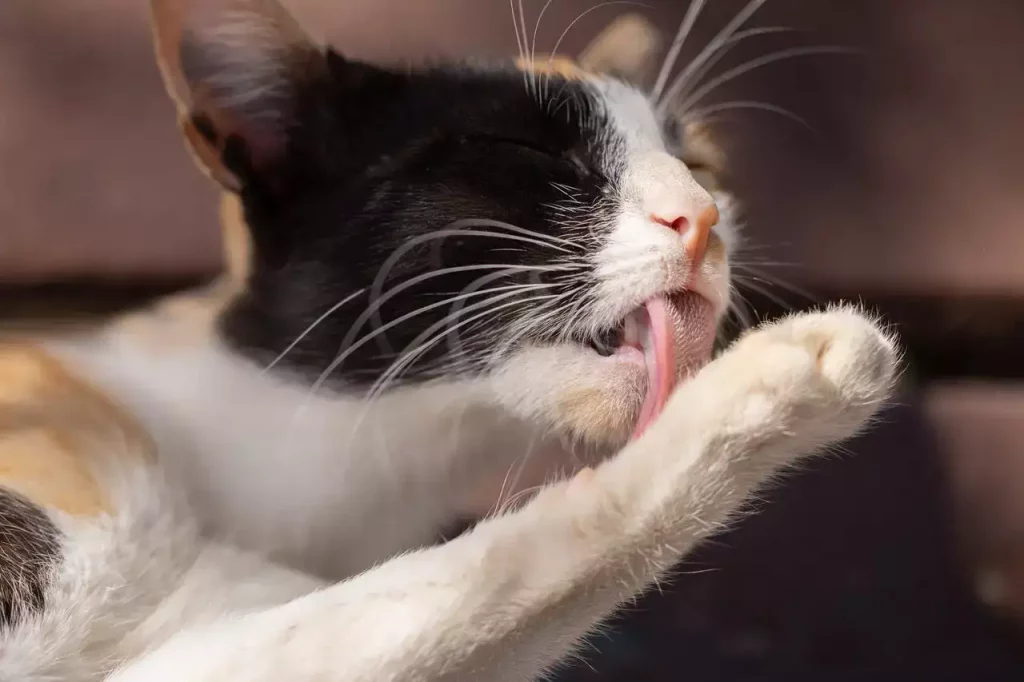Can Cats Eat Takis? Risks And Safety
Can cats eat Takis? It’s crucial to understand that Takis, a spicy snack loved by many, are not suitable for cats. These snacks contain spices and ingredients that can harm cats, such as onions and garlic, which are toxic to them.
The high levels of sodium and artificial additives in Takis can also lead to serious health issues, including digestive distress and dehydration. Cats require a diet that supports their nutritional needs, and spicy snacks like Takis offer no beneficial nutrients to a cat’s diet.
What are takis?
Takis are celebrated for their strong flavors and crispy texture, delivering a memorable sensory experience. Featuring diverse combinations of chili pepper, lime, and other spicy seasonings, these rolled tortilla chips distinguish themselves from conventional snacks.
Boasting striking colors and refreshing aromas, Takis command attention. Although delightful for some, Takis are not ideal for everyone, specifically those with minimal spice tolerance

Why do cats even like takis?
Cats’ interest in Takis can seem puzzling. It’s mainly their curiosity and the sensory appeal of the snack that draws them in. The crunchiness of Takis might remind cats of the sound of their prey, sparking an instinctive reactions.
Additionally,The intense scent of Takis, resembling natural meat or fish, captures a cat’s attention and triggers their curiosity.Similarly the strong smell of spices can be appealing to them, despite their taste buds are not designed to enjoy spicy or tangy flavors.
However, this curiosity doesn’t mean Takis are good for them, cats can be drawn to things that aren’t in their best interest, dietary-wise.
What to Do If Your Cat Eats Takis
If your cat accidentally ingests Takis, remain calm and follow these steps
- Make sure they have access to fresh water to help flush out the spices.
- Keep an eye out for any symptoms of distress or sickness.
- If you notice anything unusual, or if symptoms worsen, seek professional advice.
- Do not induce vomiting unless instructed by a professional.
- Keep track of the amount consumed so you can provide accurate information to your veterinarian.
Health risks of takis
As a cat’s stomach is sensitive and it can cause them serious health issues.While a small amount of Takis might not cause serious harm to a cat, but high dosage of some ingredients of Takis can kill cats, so it’s very important to avoid letting them eat these snacks.Consuming large amounts of eating Takis regularly could lead to:
1.Digestive Issues: Long-term health problems can arise from frequent consumption
2.Nutritional Deficiencies: Takis don’t provide the nutrients cats need to stay healthy.
3.Dehydration: High levels of sodium in Takis can lead to dehydration and electrolyte imbalances in cats, potentially causing severe health issues
4.Allergic Reaction: Certain ingredients like monosodium glutamate (MSG) found in Takis can trigger allergic reactions in cats, leading to life-threatening conditions like anaphylaxis.
5.Discomfort: The presence of capsaicin, a compound in chili peppers, can cause discomfort and digestive issues in felines.
6.Veteran Attention: Immediate veterinary attention is crucial if a cat shows signs of distress after consuming Takis, as prompt intervention can help prevent serious consequences.

Case study
Max, a curious and playful cat, tragically died after consuming Takis. His family reported that Max had been attracted to an unattended bag of Takis, which he devoured before showing signs of distress.
Despite their best efforts, Max’s health rapidly declined, and he was rushed to a veterinary clinic where he was diagnosed with the toxic effects of Takis consumption. This heartbreaking incident serves as a reminder of the dangers of exposing cats to human foods and the importance of responsible pet ownership
Did takis cause cancer?
There have been claims that Takis cause cancer, but there is no scientific evidence to support this.
However, Takis are high in sodium, fat, and carbohydrates, and low in essential nutrients, making them an “ultra-processed” food that can increase the risk of obesity, heart disease, and type 2 diabetes.
Some varieties of Takis are super spicy, which can lead to stomach pains and gastritis in some cats.
Read more:
FAQ’s
These snacks contain spices and ingredients that can be harmful to felines, such as onions and garlic, which are toxic to them. The intense flavors and high salt content in Takis are not suitable for a cat’s diet. Providing your cat with food specifically designed for their nutritional needs is the safest choice.
Yes, flavors like Takis Fuego use Red 40, a dye that makes them bright red. This color is often found in many snacks to make them look more appealing.
Takis, like many spicy snacks, can be enjoyed in moderation. However, they’re high in salt and artificial ingredients, which might not be great for everyone’s health. Eating too many can lead to stomach upset or other issues. It’s best to balance them with healthier food choices to keep your diet well-rounded.
Based on available information, purple Takis are considered halal and permissible for consumption by Muslims. These snacks do not contain any pork or non-halal animal-derived ingredients, making them compliant with Islamic dietary laws
Conclusion:
It’s not suitable to feed cats Takis because their nutritional needs differ significantly from what Takis offer. Even though consuming small amounts might not cause immediate harm, it’s wise to err on the side of caution and prevent cats from accessing Takis altogether.
Consuming Takis in substantial quantities can be hazardous for cats, given that some of the snack’s components are potentially toxic to them. Therefore, it is crucial for pet owners to vigilantly supervise their cats and promptly consult with a veterinarian if they observe any unusual behavior or symptoms in their pets.
